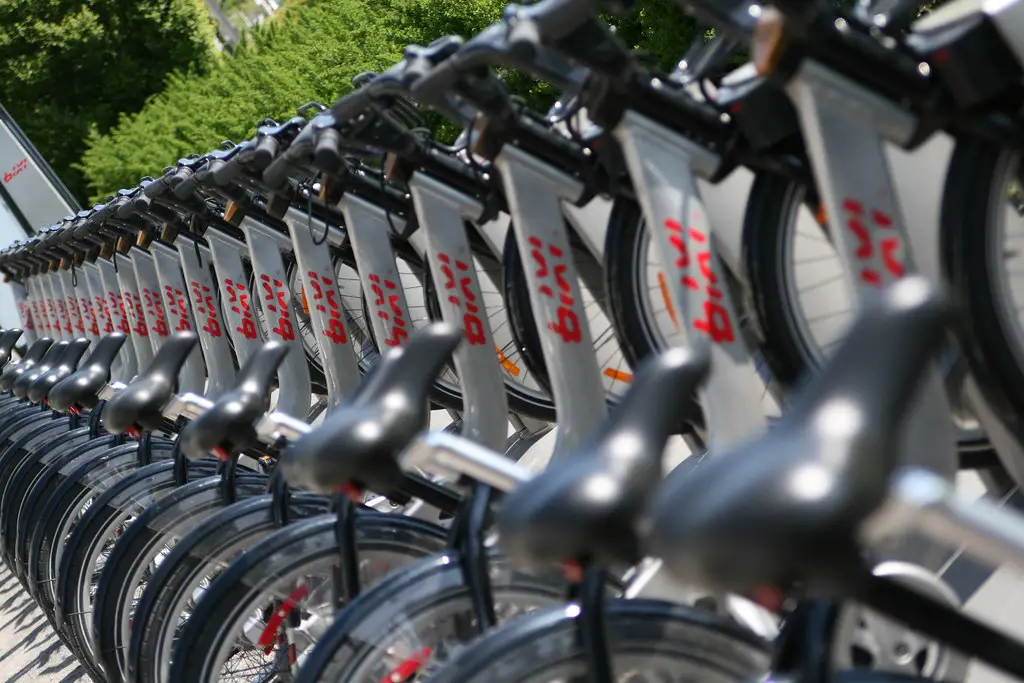In the fight to improve sustainable transportation choices in cities across the world, good statistics and good reporting are extremely important. With the release of its report, Pedal Power, last week, the London Assembly made significant strides toward the former. Unfortunately, the latter was a bit lacking.
The day following the release of the report, the London Evening Standard published an article about London’s first two “cycle superhighways,” bearing the headline “Cyclists feel less safe on Mayor’s superhighways.”
The article goes on to list other shortcomings of the bike lanes that a recent survey as part of the Pedal Power report uncovered. The implied conclusion? Boris Johnson’s bright blue cycle superhighways are likely a waste of money. After all, even the people who use them feel safer on regular roads. This finding might be pretty damning if it were true. But it’s not.
The first sentence of the article claims that “the majority of cyclists feel safer on ordinary roads than on the distinctive blue routes.” The Pedal Power report, though, reveals a different conclusion: “60 per cent of respondents did not feel safer using the cycle superhighways.”
While only a subtle difference in wording, the implications are quite large. The article title implies that the cycle superhighways are not only ineffective but actually dangerous. Based on the actual question that was asked in the survey (which can be found in its entirety here), this conclusion is highly questionable.
In the survey, just under 60% of respondents answered no to the question “Do you feel safer cycling on a Cycle Superhighway than on an alternative route?” But the answer “no, I don’t feel safer” is most definitely not the same as “I feel less safe.” At best, we can conclude that 3/5 of the people surveyed feel just as safe on regular roads as on the cycleways. At worst, the conclusion promulgated by the Evening Standard is true. In reality, it’s probably a combination of the two.
The Assembly is partially to blame for this confusion, by not honing that question a bit more. They should have asked something to the effect of, “Do you feel (safer/about as safe/less safe) cycling on a Cycle Superhighway than on an alternative route?” This would have allowed the Assembly to more conclusively determine whether some cyclists actually feel endangered when using the cycleways.
But, issues of survey design aside, the negative misinterpretation of this question hides the more positive implication. A full 40% of people surveyed said they feel safer riding in the cycleways than on other routes — and this despite all of the shortcomings identified, many of them major ones, by other questions in the survey.
Are there problems with the cycle superhighways? Without a doubt. They’ve been covered by British and international press alike and were finally acknowledged by the Assembly upon releasing the Pedal Power report at the end of last month.
Concentrating on one false conclusion from one poorly designed question is damaging, not only to the sustainable transport cause, but also to public discourse and policymaking in general.
Mayor Johnson and the Assembly are clearly on the right track with the Cycle Superhighways. They have improved the cycling safety for a large number of people, despite obvious shortcomings. The Assembly has identified many of these and recommended improvements for future cycleways. My only hope is that their plans to “increase all road users’ understanding and awareness of the cycle superhighways,” will include active enforcement methods as well as passive education efforts.
London is making significant progress improving the bike-friendliness of the city and, in the process, is setting an example for similarly car-choked cities around the world. The cycle hire program, despite a few hiccups, appears to be a resounding success — an astounding 21% of respondents said they had begun cycling as a result of the Barclays bikes. The cycle superhighways, too, in spite of some major flaws, and both misleading and negative coverage, have improved the city for cyclists.
It would be a shame to lose all that because of one, crummy headline.
Erik Weber is a contributor and Links editor of Greater Greater Washington, an urban advocacy blog covering the American capital, and a visiting fellow at EMBARQ, the World Resources Institute Center on Sustainable Transport.
Photo: Martin Dutch


